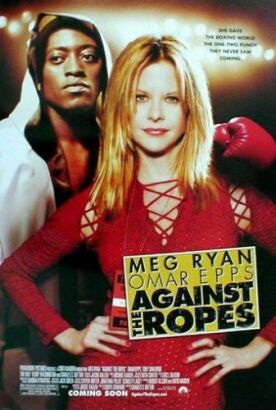Irma Vep
At its best, Olivier Assayas’s
film, Irma Vep (an anagram of Vampire) is rather difficult for an
American audience, unfamiliar with the classic French silent film Les
Vampires by Louis Feuillade (1915), to understand, since so much of it
depends on playing off that kind of innocence, but the appallingly poor English
pronunciation of Jean Pierre Léaud as the washed up director, René
Vidal, makes the difficult almost impossible. One of the few things you can make
out that he says is when he asks an assistant of his English speaking star, the
Hong Kong actress Maggie Cheung,
“I’m
not sure she understands everything I say; do you think she
does?” Well, not if
she’s anything like me she
doesn’t.
To make matters worse, it is a movie about making a movie, which is always an
invitation to a director to be too arch and knowing, to indulge himself in
narcissism and inside jokes and self-pity and other cinematic vices. It is a
temptation that Assayas does not always resist, and the upshot of the whole
thing seems to be a certain sympathy that we are meant to feel for poor
René when he ends up in some kind of asylum while his film is finished by
a rival with a completely different vision of what it is about.
The difference between the two versions, however, though we
don’t see nearly enough of it to be
sure, seems to me of some interest. There are two rival sorts of postmodernism
at issue. René’s film was to
internationalize a kind of French icon by bringing in a Chinese actress whose
stock in trade is the exciting balletic grace of a Jackie Chan, and he is always
insisting on a minimalist style of acting, while the rival, José Murano
(Lou Castel) sees the Frenchness and the melodrama of the icon as being of the
essence. Irma Vep is like Paris herself, or the Paris underworld. Like Arletty.
The rival vision is thus more political, and, as we cannot quite believe that he
can bring this figure to the screen with the innocence and freshness of her
prototype from 1915, there is some presumably campy, satirical version in store,
if only we were allowed to see it. The whole film could thus be seen as an
allegory of French politics and culture, with the left (José) and right
(René) seen as presenting us with equally unsavory alternatives, while
the fading grandeur of the past merely continues to fade.
I am, perhaps, being oversubtle, but the narrative chaos of the thing invites
some such attempt to make sense of it. And there are a number of slightly
titillating ironies to it, most notably that the exponent of modernization and
internationalization is himself infected with all the worst vices of the old
French cinema, at least according to
Maggie’s co-star, a young man who
condemns René for being
“unprofessional”
in comparison with the remarkably efficient Japanese crew he worked with on an
earlier film. Similarly, a journalist (Antoine Basler) who interviews Maggie
disparages the Vidal oeuvre as
“boring”
nombrilistique (i.e. navel-gazing) and intended for
“intellectual
elites” while singing the praises of
Arnold Schwarzenegger, Jean-Claude Van Damme and John Woo. Meanwhile, the
representative of French tradition, José, looks like a refugee from
les evenements of 1968 and rather pathetically dated as only the avant
garde can look.
All this is taking place against a subplot—which frequently threatens
to take over as the main plot—involving a lesbian costumiere called
Zoë (Nathalie Richard) with a crush on Maggie and her hesitant attempts to
kindle some kind of romance. Apart from its providing the occasion for the
straight Maggie’s comment on
Zoë’s infatuation—
“That’s
desire; it’s OK;
it’s what we make movies
with”—I confess I have no idea
what this is all about. Maggie is in a way the voice of reason, the only person
René can speak to without anger, who walks away from the picture when
René leaves it and who says to Zoë,
“I understand René; it all
makes sense to me.” But it is a little
hard to take very seriously this woman in a rubber catwoman costume.
“You want to touch
her,” says Zoë;
“she’s
like a plastic toy.”
Discover more from James Bowman
Subscribe to get the latest posts to your email.







